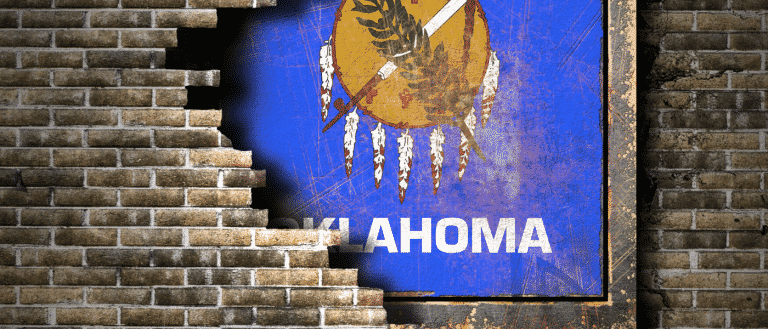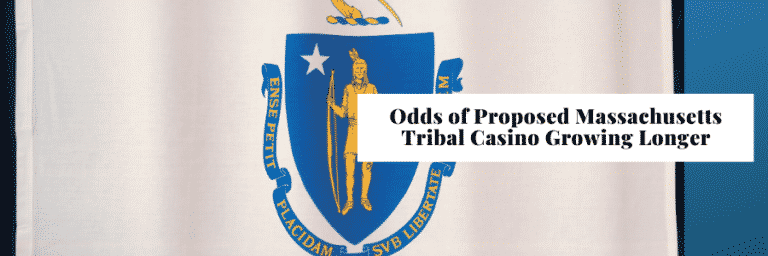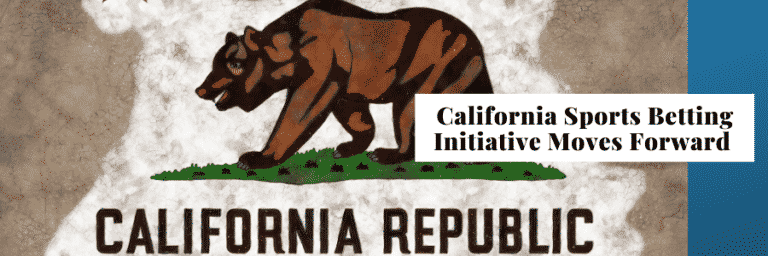Illinois DFS Ruling: OSU’s John Holden Talks Impacts

The Illinois Supreme Court ruled last week that a head-to-head daily fantasy contest from 2016 didn’t violate the state’s gambling laws because it was a game of skill, not chance, adding another chapter in the long, and oftentimes contradictory series of court battles regarding the legality of Illinois DFS.
This is good news for daily fantasy players and operators in Illinois, where the games were technically considered illegal, but it could have far bigger impacts in not just the Land of Lincoln, but the nation as a whole.
John Holden, an assistant professor of law at Oklahoma State University, spoke with Betting USA to explain the court’s decision and what this might mean for gaming regulations in America.
Attorneys general in the 50 states have come up with vastly different interpretations about the legality of DFS games and how they comply with state laws. In Illinois, then-Attorney General Lisa Madigan issued a non-binding opinion in 2015 these games were illegal. However, DraftKings and FanDuel continued to accept Illinois players, which went largely unchallenged by state authorities. Explain to us the background and results for the case the court settled last week.
The Illinois Supreme court comes out with a decision from a case that was filed in 2016. It was a ruling on a law which basically said under Illinois statutes if you lose a bet of more than $50, you can sue the person who won for your money back. It’s meant to discourage illegal gambling.
The basis for this was a FanDuel head-to-head head contest for $100. The loser sued the winner seeking to recover. Before that, In 2015, the Illinois attorney general issued an opinion letter saying that daily fantasy was illegal gambling under Illinois law.
So this case goes to trial, and we have a decision that says gambling doesn’t apply here because you’ve got a third party, FanDuel. The court is essentially saying, “no, you can’t use this law,” (to justify the lawsuit) all while making no sort of determination on FanDuel’s legality.
The plaintiff then goes to the court of appeals and the court of appeals concurs in that decision. Then they go to the Illinois Supreme Court, four years on from the actual $100 bet. The Illinois Supreme Court majority says the plaintiff can’t recover, but they can’t recover because daily fantasy sports is a game of skill; it’s not because FanDuel was involved in this at all (as a third party).
So this effectively appears to overrule the 2015 attorney general’s opinion, at least with regards to head-to-head contests. We say with regards to head-to-head contests because that was the question before the court. We don’t know how this would apply to “Millionaire Maker” type contests, which have thousands of players. It may or may not. But “we don’t know” means that wasn’t the question the court answered.
In summation, it’s a majority decision reaching the same conclusion, for both the trial court and court of appeals, but for entirely different reasons. The reasons the Supreme Court reached on the decision are much more significant than the reasons that the lower courts did.
In 2019, Illinois legalized single-game sports betting, but didn’t explicitly authorize daily fantasy contests. Additionally, the bill created a “penalty box” for “bad actors,” a not-so-subtle way to keep DraftKings and FanDuel from entering the market. Those companies will have to wait 18 months from when the state’s casinos received sports betting approvals. What are your thoughts on this approach, and what does it mean for the big, and small, DFS and sports betting companies?
I wrote an op ed before they legalized sports betting and said, “why are you passing new laws if you aren’t going to enforce the ones you have?
This is kind of my issue with states that issue these opinions and then don’t do anything. What you do is you end up punishing companies who are a little more cautious. They’re getting legal advice because some attorneys general say it’s illegal to operate here, and these operators are told: “I can’t give you an opinion in good faith to operate there.” But FanDuel and DraftKings are operating there, and then that’s an unfair advantage if the states aren’t going to work to enforce their laws.
Now If I’m DraftKings or FanDuel, I’m saying, “hold on, what we’re doing wasn’t illegal. And now we have this court decision that says basically, at least for the head-to-head contests, but now we have a court opinion that says we weren’t. So why are we being punished?”
Now I’d always caution that the court decision focuses on head-to-head contests, not your massive entry pools like the “Millionaire Maker,” so take it with a grain of salt. But I think FanDuel and DraftKings don’t have much to lose by arguing now, to whoever the powers may be, that the Illinois Supreme Court has said what we were doing was not illegal.
Could this wide-ranging Illinois Supreme Court decision have even bigger impacts in the state?
That would be the “slippery slope” way of looking at this. Both the court of appeals in the trial court highlighted this. They didn’t want this third-party idea lawsuit coming to fruition because the courts will be inundated with cases. This was a real policy concern for them as they weighed the consequences of this and that factored into their decision.
But the majority of the Supreme Court basically said “no, that shouldn’t be a factor here, this is what the law says. So (future cases) are not our concern.”
What about in other states, particularly New York, which is undergoing another high-profile DFS legality court challenge of its own?
This decision is going to make other states consider why Illinois ruled this way. It doesn’t have any bearing over another state’s case, obviously, but it might be influential, especially in some of the states that have different interpretations on games of chance. But it’s hard to forecast exactly how another state will look at this decision.
I’ll be interested to see how other courts look at this, especially due to the outsized influence New York’s actions seem to have across the country. When (former New York Attorney General) Eric Schneiderman filed his suit against DraftKings and FanDuel (in 2015) that seemed to trigger everyone else to move. So I’ll be curious to see if New York adopts some of these actions from other places.
Ryan Butler is a legislation analyst for BettingUSA.com specializing in US sports betting legislation. Ryan breaks down the latest bills in each state to ensure our readers are up-to-date on where their states sit on sports betting. You’ll often find Ryan listening to committee hearings or preparing for the latest legislation based conference.






